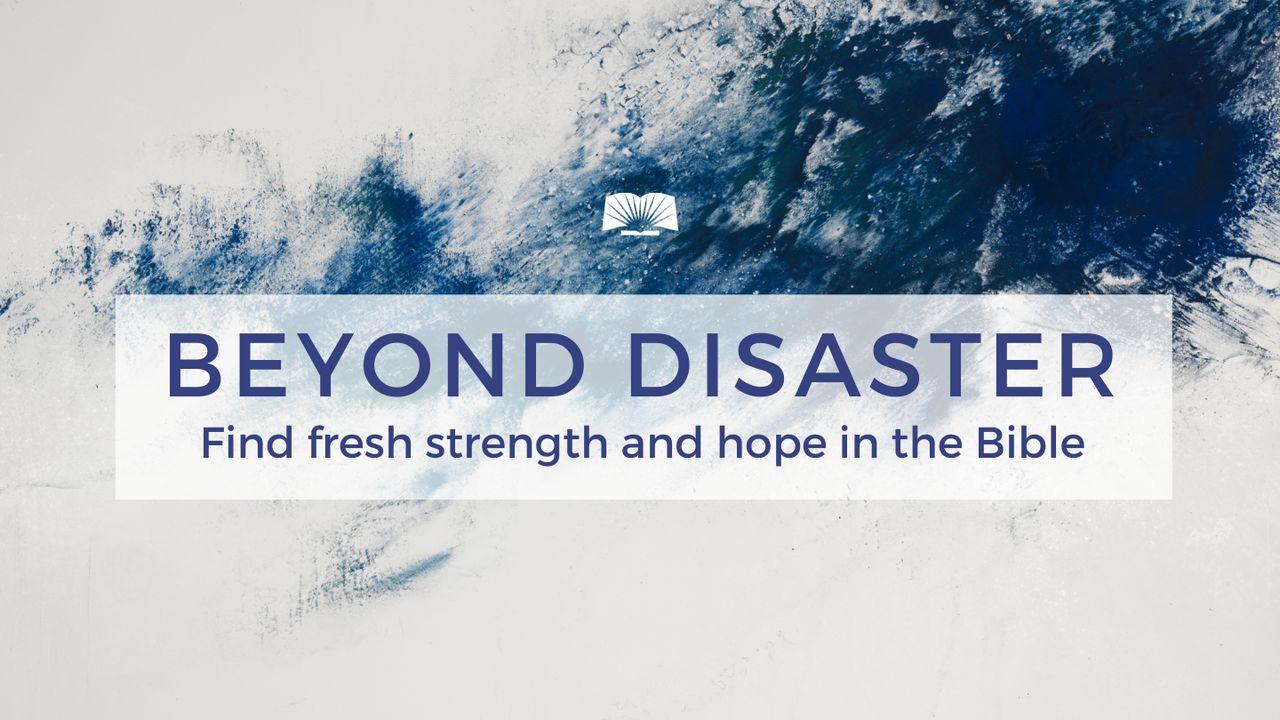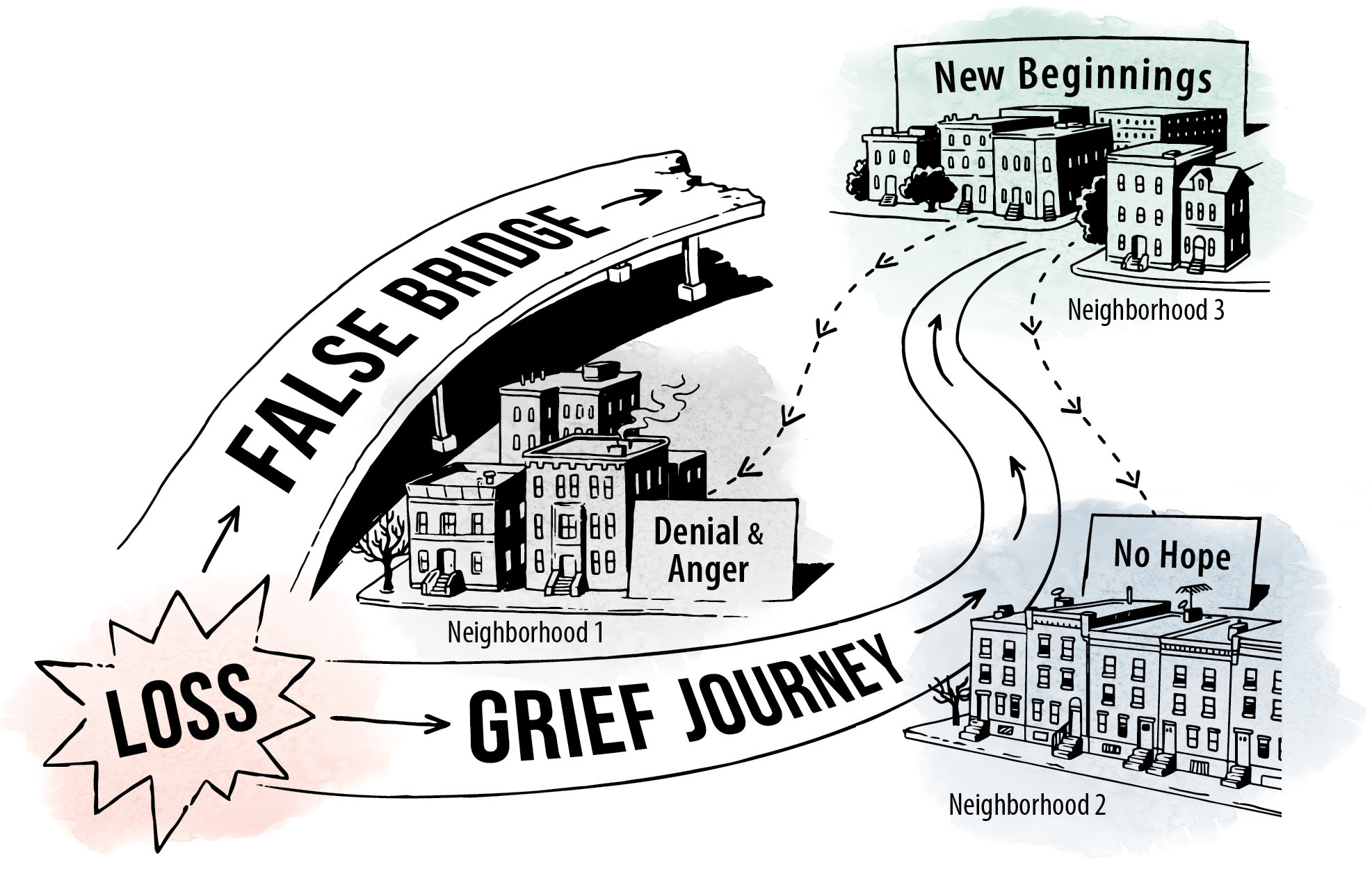Beyond Disaster: Find Fresh Strength and Hope in the BibleSample

Why Do I Feel So Sad?
Most people feel deep sadness at some time following a disaster. A traumatic experience brings with it many losses. Whenever we lose something or someone, it is normal to feel sad, and that feeling may last for a long time. It can be helpful to understand that this is part of the grieving process.
We need to grieve our losses to recover from them. Grieving is like going on a long journey through several neighborhoods.

- Neighborhood of Denial and Anger: You may be in shock and feel numb. You may deny that the loss happened. You may be angry at others, at yourself, at God. You may often be thinking “if only” you had done this or that, you could have prevented the loss. You may forget to eat. You may cry a lot.
- Neighborhood of No Hope: You may lack energy, and not want to get out of bed or care for yourself. You may feel there is no reason for living. You may want to end your life, or kill the pain with drugs, alcohol, or some other addiction. You may feel guilty for the loss, even though you could have done nothing to prevent it.
- Neighborhood of New Beginnings: You will feel new life inside you—energy, plans, hopes, wanting to be with others again. You remember what happened but don’t feel the pain like before.
You may want to avoid this journey because it takes courage and energy, but it is the way to New Beginnings.
These things can help you grieve in a way that leads to healing:
- Talk about what happened and how it makes you feel. Express your anger and sadness.
- Understand that it is normal to grieve, and that the process takes time. You will not always feel like you do today, and your feelings may vary day to day.
- When you feel sad, think about what loss may be causing that feeling.
- If you have lost a loved one, arrange a service to acknowledge the death and remember the person’s life.
- Eventually, when you are ready, bring your pain to God. The more specific you can be about your losses, the better. For example, you may have lost a loved one, but also an income, companionship, respect, or security. Bring these losses to God one by one.
For Reflection
- Have you started on the grief journey? If so, where are you?
- Who do you feel safe to talk with about your grief?
Scripture
About this Plan

Disasters can turn your life upside down, but it helps to recognize our common spiritual, emotional, and physical reactions. This plan points you to time-tested wisdom in the Bible. It suggests skills and resources to get you through hard seasons and move into the future with hope.
More
We would like to thank American Bible Society for providing this plan. For more information, please visit: https://beyonddisaster.bible
Related Plans

God's Blueprint for Excellence

Pressing On: Staying Faithful When Seasons Hurt

The Armor of God

The Meaning of Life Through Art

Following Jesus at Christmas

Faith in the Ordinary - a 5 Day Journey Through the Book of Colossians

Gather for Advent

Gradually Then Suddenly

BibleProject | Finding God in the Wilderness
